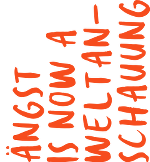The Israeli Literary Diaspora
Mati Shemoelof | ISR Autor | born 1972 in Haifa. Lebt in Berlin. Studierte Film und Geschichte an der Universität Haifa. Veröffentlichte sechs „Poetry-Books“ und eine Sammlung mit „Short-Stories“. Ist einer der Gründer von „Poetic-Hafla“, einer multilingualen Lesereihe in Berlin.
The rise of the right-wing ideology in Israel also influenced the literary scene. On 2015 “The Council for the Culture and Arts of the Lottery foundation” (In charge of organizing the highest prize for literature in Israel - “The Sapir Prize”) decided that this prize belonged only to Israelis who had been living in Israel for the past 5 years. It happened because a year before that Rubi Namdar, an Israeli writer who lives in New York won the prize. It might be hard to imagine the same for German writers, but the AfD already proposed to eliminate English lessons from school.... In any case, the national idea of “us” and “them” became a reality inside the Hebrew literature scene. The separation wall, the inside-outside discourse that started with the Palestinians, becomes now evident symbolically also within the Hebrew Jewish literature scene. And interestingly, the titles of my poetry books show a process accordingly: In 2010 I published a book called “Why don’t I write Israeli love songs” in which I talk about the problems to publish in the Hebrew language. And now, living in the diaspora, I published a book called “Outside of the sweet Hebrew insides”...
The far right in Israel doesn´t recognize the narrative of the Palestinian people. But even the Israeli mainstream sends the Jewish teens to the concentration camp of Auschwitz before enlisting them in the army - Sending the clear message: “We must fight against the Palestinian, our new enemy after WW2”. Berlin is a rare meeting point for Israelis and Palestinians and the rest of the Arab Diaspora (Lebanese, Turkish, Kurdish and now also Syrian). When I came to Berlin I had a column in “Haaretz” newspaper. I used it to talk radically about meeting with the Palestinians exile community, that can’t return to their motherland. I wrote about Berlin as a time machine. Because I could sit in a bar and the next moment a Lebanese guy from Beirut can join the table. Well, I grew up in Haifa and although I was so close to Beirut, I couldn’t even go over there. Furthermore, Haifa is half a Palestinian city and I hardly had any Palestinian friends there. There are many walls extending now to my new life in the diaspora. I had many thoughts about my new position as an Arab-Jewish Post-Israeli writer. Since I am called a “traitor” within the Israeli discourse for having left the country, should I write in German, Broken German, English or something else? And should I wait until the German right-wing, the AfD, excludes me once again from the literary map?
What can be done to avoid the mistakes of the German past or the Israeli recent history? In particular, my collective “Poetic Hafla” is a good model to confront the far right both in Israel and in Germany. “Poetic Hafla” was born as an act of Arab-Jewish empowerment. Poetic Hafla is a multi-lingual poetry, acting and party event that creates a middle-eastern culture in Berlin using reading, acting, performing and singing in multiple languages. It combines the Arabic style party (i.e. Hafla) with spoken-word and other arts. It became a mirror for a Mizrahi experience in Berlin including Jewish and non-Jewish immigrants from various countries, reading their poems in their mother tongue, sometimes without translation.
